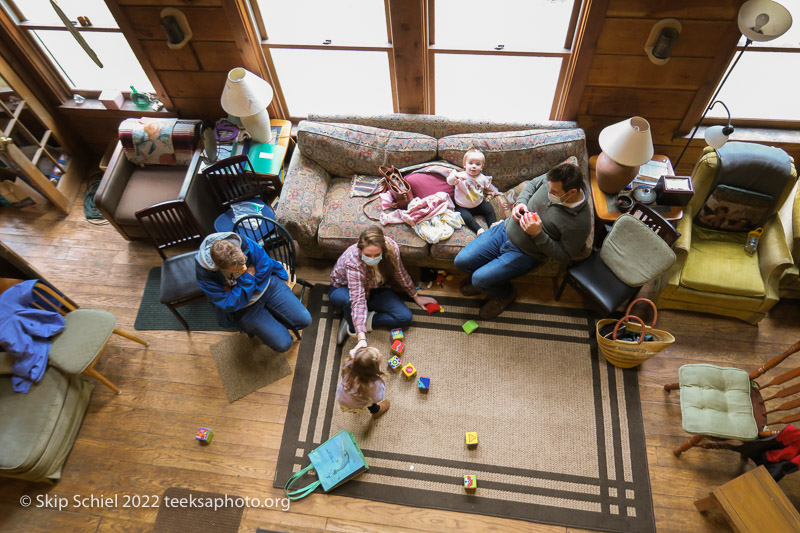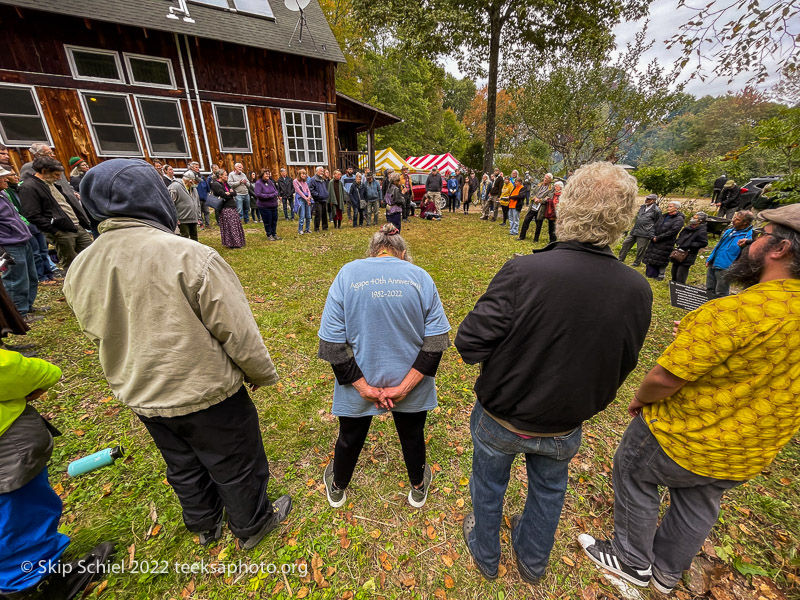The word “Love” has lost much of its authenticity, it seems, in recent years. It’s much like the difference between a warm bowl of homemade garden vegetable soup—hand-peeled onions, chopped through tears, diced potatoes and carrots, garden greens, beans, vine-ripened tomatoes, and a variety of herbs simmering in a pot on a brisk autumn night— compared to a bright red and white labeled tin can of soggy chicken noodle soup or a bouillon cube in boiled water. Yes, each offering can nourish emptiness, but one, in comparison, takes its time to reflect the work, energy, and care—that special feeling beyond satisfying hunger.
On October 1st, I accept an intriguing invitation for a 40th year anniversary gathering of the Agape Community of Catholic residential contemplatives, founded in 1982 in Central Massachusetts. It is interfaith in practice and outreach committed to embodying sustainability and justice. In the spirit of nonviolence, members, interns, co-founders strive to live in peace, understanding our living earth as sacred, as are all of its inhabitants. What starts as an intentional ride on a cloudy New England autumn day with a friend of over 50 years grows into a meaningful time of care and concern, listening to everyone’s stories, and finding pieces of my own. It becomes a genuinely spiritual experience.
Several presentations prompt my attention: photos and stories from social journalism photographer Skip Schiel (http://teeksaphoto.org/) whose years of work highlight transformations of people from enemies to advocates for peace in the Israel-Palestine conflict; interfaith prayerful words in Hebrew and Arabic traditions from Cantor James Levinson and Dr. Mohammed Bajwa whose reciprocal energy in reverence, with clasped hands held high, profess kindred origins and relationships, and a stirring call to prayer from Abdul Azeem Chaudhry; and the moving words of Dr. Robert Morris about the tragedy of one family during the War in Iraq. Being somewhat distant from the center of the ceremony, I strain to hear details of the speakers. Even so, I witness these moving events blending into a connected mosaic of nonviolent responses touching moments from my own life story.
Maybe it was the surprise written response in 1998 received from the Royal Hashemite court after I wrote to King Hussein of Jordan, in appreciation for his ongoing role in brokering peace within a destabilizing Middle East, or my participation in the later protests in New York City against increasing calls for War in Iraq, or the thousands of multicolored PEACE (PACE) flags in disapproval of moves towards war, unfurled from balconies in Italy where I spent ten years of my life, but my attention now circles on the Kader family.
In 2005, two years after the Iraq War had been unleashed amid worldwide protests, this family of four (father, mother, two sons) was riding in their car, arriving at a checkpoint in Mosul. Members of the U.S. military mistakenly fired on another passenger car nearby and they were caught in the crossfire. Sabah, the father, pushed his son Ali out of the car before he was injured. Omar, Ali’s 3-year-old brother, survived an explosion with more than 70% of his body burned. Suad, mother of this family, did not escape the fire.
This Saturday, in reflection on issues of nonviolence, I notice several young people, some of whom are children and grandchildren of these people of peace, and two solemn young men who I understand are Ali and Omar. Their stoic presence during prayers as a plum tree is rededicated to their mother fills the autumn woods with a deep, palpable, silent energy. All of these stories, these people who have worked together for years on issues of nonviolence make an overwhelming impression.
When our experiences intersect with those of others, there is often a touch or tug of interest that connects us across the boundaries that seemingly surround us. Those barriers then dissolve, and there begins a freedom to understand, and genuinely love others.
As Richard Rohr notes in his Daily Meditation on Nonviolence, 10/29/22,
Martin Luther King Jr. defined Agape love as willingness to serve without the desire for reciprocation, willingness to suffer without the desire for retaliation, and willingness to reconcile without the desire for domination.”
It is this spirit of service and nonviolence embodied in the Agape Community and its 40-year legacy that offer a calculated antidote of unconditional love for the darkness of today’s world.
For more information: https://agapecommunity.org/timeline/
Reflections & Photography: https://agapecommunity.org/2022/10/17/skip-schiels-reflection-for-agapes-40th-anniversary/
Iraq: https://agapecommunity.org/2022/10/14/robert-morriss-speech-at-plum-tree-dedicated-to-saud-kader/

Inside St Francis House—the nursery






